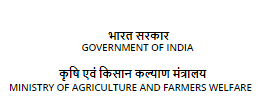Cassava Resistant Starch (RS4)
Background:
Resistant starch (RS) deserves special attention in the fast-developing food industry because of its inevitable role in combating metabolic diseases. The RS, the fraction of starch which is not digested in the small intestine, while reaching large intestine fosters the growth of colon microbiota and enhances butyrate production, which is essential for colon health. RS lowers the energy and available carbohydrate content of foods and enhances the total dietary fiber content and it is a promising source of pre-biotics. Cassava or tapioca tubers contain the highest digestible energy among the root crops with an average of 14.7 MJ/kg. Cassava starch has a very high glyceamic index (>90) and hence its consumption causes a rapid increase in the blood glucose level. So, the aim of this study was to decrease the digestibility of cassava starch and make it resistant to digestive enzymes so that it can act as a functional food ingredient with lower glyceamic index.
enzymes so that it can act as a functional food ingredient with lower glyceamic index.
Technology Details:
The chemical modification of cassava starch attempted in this study to make RS4 enriched starch enhanced its resistant starch content and lowered the glyceamic index. The slowly digestible starch (SDS) and resistant starch (RS) content in the cooked samples of modified cassava starch were 38.4±0.88% and 20.8±0.62% respectively, against 20.5±0.41% and 1.5±0.39% respectively, for the native starch. There was a significant reduction in the estimated glyceamic index (EGI) of the modified starch (62.1±1.68) in comparison to native cassava starch (91.2±1.34). Therefore, the RS4 type Resistant Cassava Starch developed is beneficial in formulating low-calorie food and diabetic food and it can act as a pre-biotic. It can be used to improve the nutritional value of various food products.


